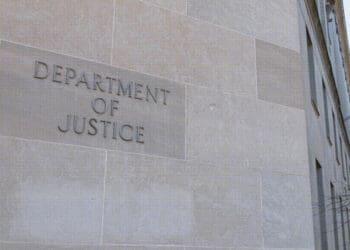Oral argument at the United States Supreme Court in Universal Health Services v United States ex rel. Escobar occurred on April 19 and the exchanges between the Justices and appellate counsel provided fascinating insight into how the legal minds on display that day thought about fraud and falsity under the False Claims Act. This article examines the arguments and counterarguments that were made as a means of illuminating what makes a claim or statement “fraudulent” or “false” under the statute.
Case Background
The Universal Health Services case arose out of the care rendered to the relators’ daughter at Arbour Counseling Services, a mental health center in Massachusetts owned and operated by Universal Health Services, Inc. The relators alleged that their daughter, who died of a seizure in 2009 while still under Arbour’s care, was treated by assorted unqualified and unsupervised staff at Arbour, in violation of various state regulations — compliance with which was a condition of payment by the Massachusetts Medicaid program (known as MassHealth). The relators alleged that this fact rendered Arbour’s claim submissions false under the federal and state False Claims Acts.
The District Court dismissed the complaint, concluding that only one of the regulations constituted a condition of payment and that the relators had not alleged fraud with sufficient particularity under Rule 9(b).
The First Circuit Court of Appeals reversed, framing the issue as being “simply whether the defendant, in submitting a claim for reimbursement, knowingly misrepresented compliance with a material precondition of payment.” United States ex rel. Escobar v. Universal Health Services, 780 F.3d 504, 512 (1st Cir. 2015). The court noted that “[p]reconditions of payment, which may be found in sources such as statutes, regulations and contracts, need not be ‘expressly designated.'” Id. (citation omitted). The court went on to hold that the regulatory provisions at issue “clearly impose[d] conditions of payment,” that those provisions require “appropriate supervision,” and that “the core of [the r]elators’ complaint” was that “supervision at Arbour was either grossly inadequate or entirely lacking.” Id. at 513-14.
Although the First Circuit disclaimed any concern over what it considered “artificial” distinctions between implied and express certification theories, the court’s ruling effectively applied a theory of implied certification. The court specifically noted that while the record “was silent as to whether Arbour explicitly represented that it was in compliance with conditions of payment when it sought reimbursement … we have not required such ‘express certification’ in order to state a claim under the FCA.” Id. at 514 n.14. The court further commented that “each time it submitted a claim, Arbour implicitly communicated that it had conformed to the relevant program requirements, such that it was entitled to payment.” Id. (emphasis added).
The U.S. Supreme Court granted certiorari to consider two questions: First, whether the “implied certification” theory of legal falsity under the False Claims Act (FCA) is viable; and second, assuming the “implied certification” theory is viable, whether a reimbursement claim can be legally “false” under that theory if the contractor submitting the claim failed to comply with a statute, regulation or contract provision that does not expressly state it is a condition of payment.
Oral Argument
The gist of the argument pressed by counsel for Universal Health Services (“UHS Counsel”) focused on the difference between “fraud” and “falsity” under the FCA on the one hand and a simple regulatory violation, or breach of contract, on the other hand. UHS Counsel started off by arguing that a regulatory violation is not the same as “fraud” under the FCA and that likewise the concept of “falsity” does not include misleading or deceptive conduct which, he argued, is relegated to the “law of fraud.” (Tr., p. 4).
UHS Counsel’s opening remarks prompted this reply by Associate Justice Stephen G. Breyer:
Justice Breyer: Suppose you have a private contract… it’s for medical services. The written part does not actually use the word “doctor,” but … any reasonable person would assume … that the parties contracted for medical services provided by a doctor. Could not a jury or the judge find that that implicit term of the contract that the services would be provided by a doctor was breached, it was a material breach, and, therefore, the implicit statement was false? (Tr., pp. 4-5)
In response, UHS Counsel decried the “tortification of contract” and referred to Section 551 of the Restatement (Second) of Torts discussing the concept of “concealment and nondisclosure” and addressing a party’s “very, very narrow” duty to disclose “facts basic to the transaction if he knows that the other is about to enter into it under a mistake as to them and that the other, because of the relationship between them, the customs of the trade or other objective circumstances, would reasonably expect a disclosure of those facts.” Tr., p. 5; Restatement (Second) of Torts § 551(2)(e).
Justice Breyer then replied:
Justice Breyer: Well fine. But now let’s go a step further. We have our contract. The facts are such that any reasonable person would assume there is an implicit statement that the services will be provided by a doctor. You say that could be a breach of contract. Now it turns out that this company that has that contract has sold shares … And the SEC says … it’s so obvious that that implicit statement in the contract meant that they had a doctor who was a doctor … that … we think that’s fraud under Rule 10(b)(5). (Tr., p. 6)
When UHS Counsel demurred at the notion that this could be construed as “fraud” under the common law, Associate Justice Elena Kagan entered the fray:
Justice Kagan: … I guess I don’t understand that… Let’s say that there’s a contract and there is an explicit term, and it says I commit to providing a doctor’s care. Yes? And then it turns out that the medical care that was provided was not by a doctor… And … then the person who enters into the contract makes a demand payment, and says the care was provided. Now some care was provided; it is true. But medical care, a doctor’s care was not provided. Now, by withholding that fact and by just saying the care was provided, have I not committed fraud under the common law? (Tr., p. 8)
After UHS counsel disputed that it would be a fraud, Associate Justice Anthony Kennedy joined the discussion:
Justice Kennedy: What … about [Restatement (Second) of Torts § 529] which … says a statement is fraudulent if the maker knows or believes that it’s misleading because of his failure to add an additional statement to make it true? I don’t see why that isn’t completely applicable to … the hypothetical that Justice Kagan just gave… There is a failure to make an additional or qualifying matter in order to make that statement not false. That’s exactly the Justice’s hypothetical. (Tr., pp. 8-9)
At this point, UHS counsel sought to distinguish Justice Kagan’s hypothetical from the facts in Universal Health Services, which he contended involved a regulation that none of the parties had even cited, but the undisclosed violation of which had been ruled a fraud. Justice Breyer appeared sympathetic, responding:
Justice Breyer: I see that… How do you distinguish those regulations, breach of which are fraudulent when you breach them, and implicit promise not to, from those that [are] not. There are millions of regulations… (Tr., pp. 9-10)
Justice Breyer suggested the possibility of applying the concepts of material and non-material contract breaches to solve the problem:
Justice Breyer: What you’d say, of course, it applies where the condition that was lied about was material. And there can be implicit lies… You might implicitly imply that you fulfilled provision No. 43876 which says paper should be three inches long. Okay? Or there could be an implicit lie that the person in your hospital was a doctor. The first you’d say is not material. The second is material … (Tr., pp. 10-11)
After UHS Counsel argued that the distinction raised by Justice Breyer would not solve the problem due to the FCA’s broad definition of “materiality,” Justice Sonia Sotomayor responded:
Justice Sotomayor: I’m sorry. I’m totally confused. I always thought that when you asked for payment, you’re making a promise: I did what I agreed to do. Pay me, please. That’s, to me, what’s sort of understood. If I hired you to provide me with doctor services, you ask me for money. I’m assuming you provided me with doctor services. And you know you didn’t. Why isn’t that a fraud? (Tr., p. 12).
In response, UHS Counsel suggested that Justice Sotomayor’s example might only be a breach of contract, and that whether a fraud existed would depend on the circumstances and whether a duty to disclose existed because fraud “is all about when there is and isn’t a duty.” (Tr., p. 13)
Justice Kennedy then revisited the concept of materiality and UHS Counsel’s previous statement that materiality constitutes an additional requirement not part of the definition of fraud or falsity:
Justice Kennedy: That’s what I have a hard time understanding. It … seems to me we just can’t think about fraud unless we have materiality in some sense… Otherwise, it seems to me, fraud doesn’t make much sense. (Tr., pp. 14-15)
UHS Counsel agreed. Justice Kagan then rejoined the discussion:
Justice Kagan: Justice Sotomayor said the government contracts to buy guns; the guns don’t shoot. The government contracts to buy boots … the boots fall apart after 12 hours. The government contracts to buy food; the food was rancid. And each of those contractors would come in and would demand payment. And the entire idea behind [the FCA] is that in that demand of payment is a representation. The representation is that I’ve given you guns that shoot and boots that wear and food that can be eaten. And when … that is not true, that is a fraudulent claim. And you’re suggesting that all these hypotheticals that somehow that’s not a fraudulent claim. And I guess that leaves me sort of wondering what do you think would be a fraudulent claim? (Tr., pp. 15-16)
To that, UHS Counsel admitted that they all could be fraudulent claims, but resisted Justice Kagan’s assertion that the examples supported application of the FCA to the facts of Universal Health Services, arguing that Justice Kagan’s analysis assumed certain implicit representations in the claims and that “implied certification” was not part of FCA jurisprudence earlier than 1994. Justice Kagan, however, was undeterred:
Justice Kagan: … In demanding payment for satisfaction of the contract, you are not making a recommendation that you have satisfied the contract?
UHS Counsel: Not that broadly. Not … every jot and tittle …
Justice Kagan: I’m not into every jot and tittle. I’m into material portions of the contract… you know, that the guns shoot, that the boots can be worn, that the food can be eaten … and a doctor’s care is a doctor’s care. (Tr. Pp. 17-18)
After UHS Counsel finished speaking, counsel for the relators and the United States each addressed the High Court. The relators’ counsel clarified that the FCA is violated only when the claimant knowingly violates and fails to disclose a material condition of payment, which he argued made Restatement § 529 the more relevant section:
A representation stating the truth so far as it goes but which the maker knows or believes to be materially misleading because of his failure to state additional or qualifying matter is a fraudulent misrepresentation. Restatement (Second) of Torts, § 529.
The Deputy Solicitor General (“DSG”) addressed the Justices on behalf of the United States, as amicus curiae, offering “two different but complementary analytic routes that the Court could take” (Tr., p. 35):
DSG: One way to look at this is to focus on the fact that in Medicaid… a person who submits a claim … is representing that he has a legal entitlement to be paid. And you can say, if a person asserts that he is legally entitled to be paid, and he knows that he has no such legal entitlement, the claim is false. And if the person knows that he has failed to comply with a material term of the contract or a material regulatory requirement, by definition, the government will have no obligation to pay, and the claim of legal entitlement will be false… The other analytic route that you could take follows up on Justice Kagan’s hypothetical about the situation in which there is a contract for services to be performed by a doctor … And it seems like clear fraud under 529 and 551 under the Restatement. You have made a representation; services have been performed. Explaining that they were performed by a non-doctor under the circumstances is essential to make that representation non-misleading… (Tr., pp. 35-37).
Responding to the DSG’s suggestion that a material violation will excuse the government’s obligation to pay, Justice Sotomayor interjected:
Justice Sotomayor: Well, but that doesn’t answer the question. There’s a miscoding that’s intentional and knowing, and there’s a miscoding that’s negligent.
DSG: Exactly.
Justice Sotomayor: So if it’s a mistake you could withhold payment, but you can’t sue under the False Claims Act, correct?
DSG: Exactly. And there is a mental state that the FCA contemplates between negligence and actual knowledge, because it defines the term “knowingly” to include recklessness … Tr., pp. 43-44.
Earlier, the DSG had characterized the scienter requirement as “crucial” and that it “applies both to knowledge of the breach, and knowledge that it is material to the government.” Id. at p. 43.
The Epistemology of Fraud
What appears clear from the above discourse is that, at least in the minds of several Justices, one can commit fraud in submitting a claim even if the claim does not explicitly represent compliance with a particular condition of payment that has not been satisfied. Based on the questioning, the concept of “implied certification” seems likely to be accepted in circumstances where the claimant knows of a material condition of payment that has not been satisfied and yet still seeks payment from the government without disclosing that fact. On this view, what elevates conduct from a simple contract breach or regulatory violation to fraud that is actionable under the FCA is the submission of a claim while knowing that you have not satisfied a material precondition of payment, and this is so irrespective of whether the claimant has expressly represented compliance with such precondition in the claim itself.
All the participants in the oral argument of Universal Health Services seemed to recognize that knowledge of non-compliance (i.e., scienter) and materiality may together give rise to a duty of disclosure, the breach of which can create the conditions for treating a claim as “false” or “fraudulent” under the FCA. That conclusion may well be bolstered by the fact that the victim in the FCA context is the government and, as Justice Oliver Wendell Holmes once noted: “Men must turn square corners when they deal with the Government.” Rock Island, A. & L.R. Co. v. U.S., 254 U.S. 141, 143 (1920).
That is why selling the government guns that do not shoot, boots that do not wear and food that is inedible is more appropriately viewed through the lens of fraud than breach of contract. The obvious, albeit implicit, representation in claiming payment for such services is that the guns will work, the boots will wear and the food will be edible – all material preconditions of payment. Knowingly seeking payment without satisfying those material conditions or disclosing such fact is plainly fraudulent and not merely a contract breach, whether or not the claimant expressly represented that the conditions were satisfied. Similarly, seeking payment for the services of qualified and properly supervised medical personnel while knowing they were, in fact, unqualified and unsupervised and that these were material preconditions of payment could be fraudulent under the FCA, regardless of whether the claimant expressly represented that those conditions were satisfied. Rather, it is their materiality combined with the knowledge that they were unsatisfied that can give rise to a duty of disclosure, violation of which may justify a finding of fraud. The fact that medical providers are regarded as having a fiduciary relationship with government health insurance programs should theoretically make such a finding even easier.
Less clear is whether, in the regulatory context, the High Court will require that a regulation that is a precondition of payment explicitly declare itself as such in order to support an FCA claim. The First Circuit, in Universal Health Services, adhered to its prior position that an express statement is not required, and under the fraud analysis discussed above, a requirement of that type would not appear necessary to a finding of fraud or falsity under the FCA if a claimant can otherwise be shown to have knowingly failed to disclose its non-satisfaction of a material precondition of payment in seeking compensation from the government. It will be interesting to see whether that particular issue is also addressed in the Supreme Court’s ruling, which is expected to be handed down sometime during June 2016.











